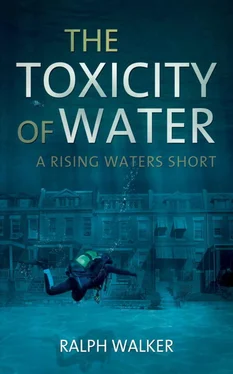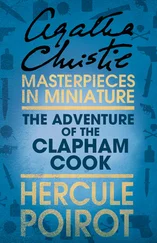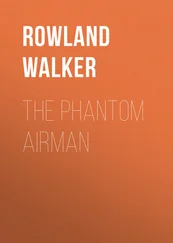Ralph Walker
THE TOXICITY OF WATER
Everything was damp again. Nothing had soaked all the way through, but the wet parts would bloom into mold or worse if he let it go. He pressed a dry sponge against the base of the wooden toolbox, soaking up what he could. The color faded a shade with each pass. Inside the open top, the Ziploc seals were tight, but the metal had gouged the bags too many times. Moisture would get in again soon.
“Is there any more saran, Dot?”
“Not for metal, Sherman. I need it for the cheese, and the herbs.” She called back.
“We shouldn’t preserve them if they don’t have any flavor left.” He said it loud enough she might hear him, if she bothered to listen. It was an old fight. She wanted to save the basil and the tarragon. He wanted to save the Philips heads and the Allan keys. They were both right.
Sherman left the tool box in a slice of sunlight and shuffled back across loose pallets to their main house. It pained him use that word to describe their dwelling. The stand of tent poles he had lashed was working pretty well. High over the wheels the truck bed was cramped but dry. Dot had rolled back their quilted roof of tarps to let things air out for the afternoon. The potted plants were doing fine on the ground, but he needed a better place for his toolbox. Once the rain returned, he couldn’t leave the metals out in the elements. All too soon they’d surely rust.
Maybe he shouldn’t be concerned. They’d have to be moving along again before too long, looking for higher ground. No matter what Dot thought they couldn’t resettle, not here. It wouldn’t matter if the rains came or not.
Sherman climbed onto the steel bumper and sat on what used to be his old nightstand. King James was still stuffed in the top drawer along with his will and a Smith and Wesson he had never learned to shoot. He pulled off his boots and socks and dropped them onto the welcome mat Dot had grabbed in the panic. He pulled a dirty towel off the igloo cooler and dried his feet. The wrinkles of age and wet were impossible to discern.
Dot worked a roux, shaking flour over the shallow pan. He paused at her shoulder. “How much do we have left?”
“Enough to have a decent meal with your grandson.” She worked the shredded bacon in between the cattails and cabbage. From the bite in her voice Sherman knew they wouldn’t need any pepper, at least not tonight.
“I don’t like him coming here.” He said.
“Why, because you are embarrassed? This will be his someday too. Besides it isn’t your choice. I invited him.”
Sherman grumbled as he crossed the flatbed and sat on a dining room chair to rub his corns. Dead skin peeled under his thumb. The itch felt good.
#
Hunter climbed over the third felled tree and got back on the asphalt. He strode up Rose Glen Road alongside the guardrail. The tree’s shadows were long but the sky was still a day tone of blue. A dozen wooden pallets fitted together into a makeshift deck, bordered by potted vegetables, an unlit lantern, and Sherman’s wooden toolbox. Two plastic deckchairs waited, vacant in the center. The truck was parked on the uphill side, straddling a wet stone gutter. The cab was dark, but the curved plastic roof glowed. Slices of lantern light poked out between the outer wall of book shelves and dressers. He could hear the action inside.
The fry pan sizzled and popped while Dorothy stirred. A metal canister snapped like a snare drum as Sherman dropped in hardware and plucked it back out again. Hunter ducked his head under the tarp.
“Hi Nana.” The boy’s smile was wide as he hopped up to the bumper. The flat bed tow truck had been a blessing. Solid engine, high wheelbase, large bed, it had mostly kept them out of the wet and made it easy to move, but there really wasn’t enough room to bring everything. They had a little extra elbow room when they could make camp and spread out.
He dumped his deflated dry pack next to their boots. She put down the spoon and wrapped an arm around her kin’s neck, kissing him on the cheek from behind. “I have an extra pair for you.” She pulled a knot of frayed white athletic socks from the leg pocket of her over-worn fatigues.
Hunter smiled over his shoulder. “Thanks Nana, but I brought my own.” His skinny arm held up a pair of grey woolies. He dried his feet and donned the socks.
Hunter half stood, half crouched under the arched tarp and picked his way toward the dining table that dominated the flatbed. Careful to stay on the knotted carpet, he ducked under mason jars hanging from the bents and high stepped over plastic milk crates on the floor. Sherman kept every version of grinder and screwdriver and bowsaw he could find. Hunter wasn’t sure what he was saving the hand tools for, but he seemed to have one of every type should some need arise.
“How far have the waters receded?” Sherman never waited to ask the most important question.
“Not far enough.” Hunter stretched out a hand to his grandfather.
The smaller man shook hands with his grandson and pulled the boy in for an awkward embrace. The kid had grown long, like his mother. His features were flat; ears pressed back, hands like paddles, too thin around the middle. Dot always tried to ply him with scrapple or pork roll when they could get it, but he always pushed it back to them. He never did eat enough meat.
“Not far enough.” Sherman repeated as he let the boy go. “Where are you working?”
Hunter straddled a crate with a pillow top and pulled up to the dining table that doubled as Dorothy and Sherman’s bed. “Got a dive gig out of Pennsauken. They’ve taken half a dozen of us.”
“Dive gig?” Dot smiled back. “Sounds like you’ll need seconds.”
“Based on what I smell, I might need thirds.”
#
The meal didn’t last long. Dot stretched the bacon and cattails as far as they would go. Everyone ate enough. After plates were cleaned Sherman fished a gallon jug from behind his chair. He poured three shots of cloudy clear into Dot’s favorite teacups.
She raised the cup to her nose and let the moonshine touch her lips. She smiled adoringly at her husband and pushed the cup to her grandson. “You need the hair on your chest more than me.”
Hunter, mid-sip, almost spit at his grandmother’s statement. He gulped down his drink. “I’m not fifteen anymore Nana. I’m pretty well done growing.”
“I hope so, or I’m going to have to raid some highlander’s pantry before you visit anymore.” She reached across and mussed his hair.
Sherman sipped his drink. Hunter slowed himself down, watching the older man. The space heater splashed a warm orange light across the plastic and hung glass. Their shadows danced on the checkerboard tablecloth.
“I’m working on the peninsula.” Hunter watched his grandfather’s face.
“Oh?” He took another sip. “North end?”
“No. The Schuylkill.”
Sherman’s eyes found Dot’s. He tipped back his teacup, finished his drink and folded his hands. “Are they diving the west side of Philly again? We heard the water has been too fast.”
“They’ve been dropping temporary eddies. The water is shallower too, not receded, not yet, but shallower. Besides, north Philly has been picked over.” Hunter said.
“You best be careful.” Sherman frowned. “Those temporary eddies just make the water go faster, other side of the structures.
“I know Grandpop.” Hunter’s lips flattened.
“Do you think you’ll be going down Twenty Fourth Street?” Dot asked.
“They have to do the whole city Dorothy. Don’t get your hopes up. Every block is swamped.”
“They showed us new maps today. Rooflines are emerging for some two story buildings north of Grey’s Ferry. Tidal water isn’t getting past Reed Street anymore. Everything is still swamped, but it’s a pool, not a river.” Hunter focused on his grandmother. “I don’t know what there will be to recover, but I have to go down Twenty Fourth Street each way. It can’t hurt to look.”
Читать дальше












